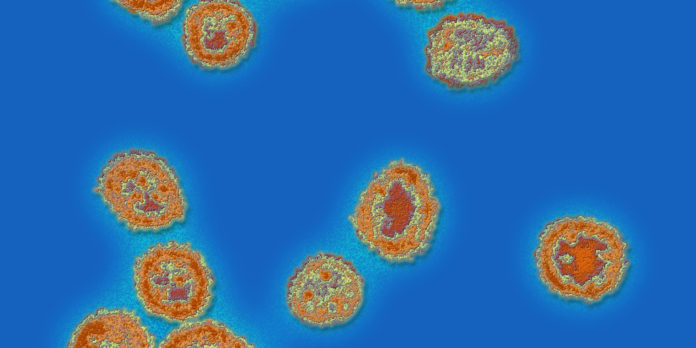
A man who returned to New Jersey from West Africa has died of Lassa fever, a frightening disease that’s only known to have entered the United States a handful of times in the past few decades, federal health officials said.
Doctors diagnosed the patient, whose name was not released, on Monday. He had traveled from Liberia through Morocco, landing at New York’s John F. Kennedy International Airport on May 17. He did not have a fever when he left Liberia and did not report symptoms of Lassa fever, which include diarrhea, vomiting or bleeding, during his flight, the Centers for Disease Control and Prevention said Monday.
The man, whose temperature was taken when he arrived in the USA, also did not have a fever at the airport, the CDC said. Officials began screening passengers for Ebola-like symptoms at five U.S. airports last fall.
The next day, May 18, he went to a New Jersey hospital complaining of a sore throat, fever and tiredness. According to the hospital, he was asked about his travel history and he did not mention going to to West Africa. Hospital staff sent the man home the same day.
The man returned to the hospital Thursday, May 21 when his symptoms got worse, the CDC said. Hospital staff transferred the man to a treatment center prepared to treat viral hemorrhagic fevers. The man tested positive for Lassa fever early Monday morning, but did not test positive for Ebola. The patient was in “appropriate isolation” at the hospital when he died Monday evening, the CDC said.
“Lassa fever is a viral disease common in West Africa but rarely seen in the United States,” the CDC said. “There has never been person-to-person transmission of Lassa fever documented in the United States.”
Close contacts to be monitored
This latest case is the sixth known instance of Lassa fever among travelers coming back to the United States since 1969, excluding convalescent (or recovering) patients, according to the CDC. The most recent case before this one was in Minnesota last year.
Like Ebola, Lassa fever can produce bleeding symptoms in patients, but it has a fatality rate of only about 1%, compared with around 70% for Ebola. It is also less likely to be spread from person to person, the CDC said. “The virus is not transmitted through casual contact,” it said, “and patients are not believed to be infectious before the onset of symptoms.”
The CDC said the risk to other people from the New Jersey case was considered “extremely low.” But it’s working with public health officials to draw up a list of people who had contact with the patient and will monitor those identified as close contacts for 21 days.
Lassa fever was named after a Nigerian town where Western-trained doctors first noted it in 1969. An estimated 100,000 to 300,000 infections occur in West Africa each year, including about 5,000 deaths. In some areas of Sierra Leone and Liberia, 10 to 15 percent of people admitted to hospitals every year have Lassa fever, which is typically transmitted to humans through contact with rodent urine or droppings.
